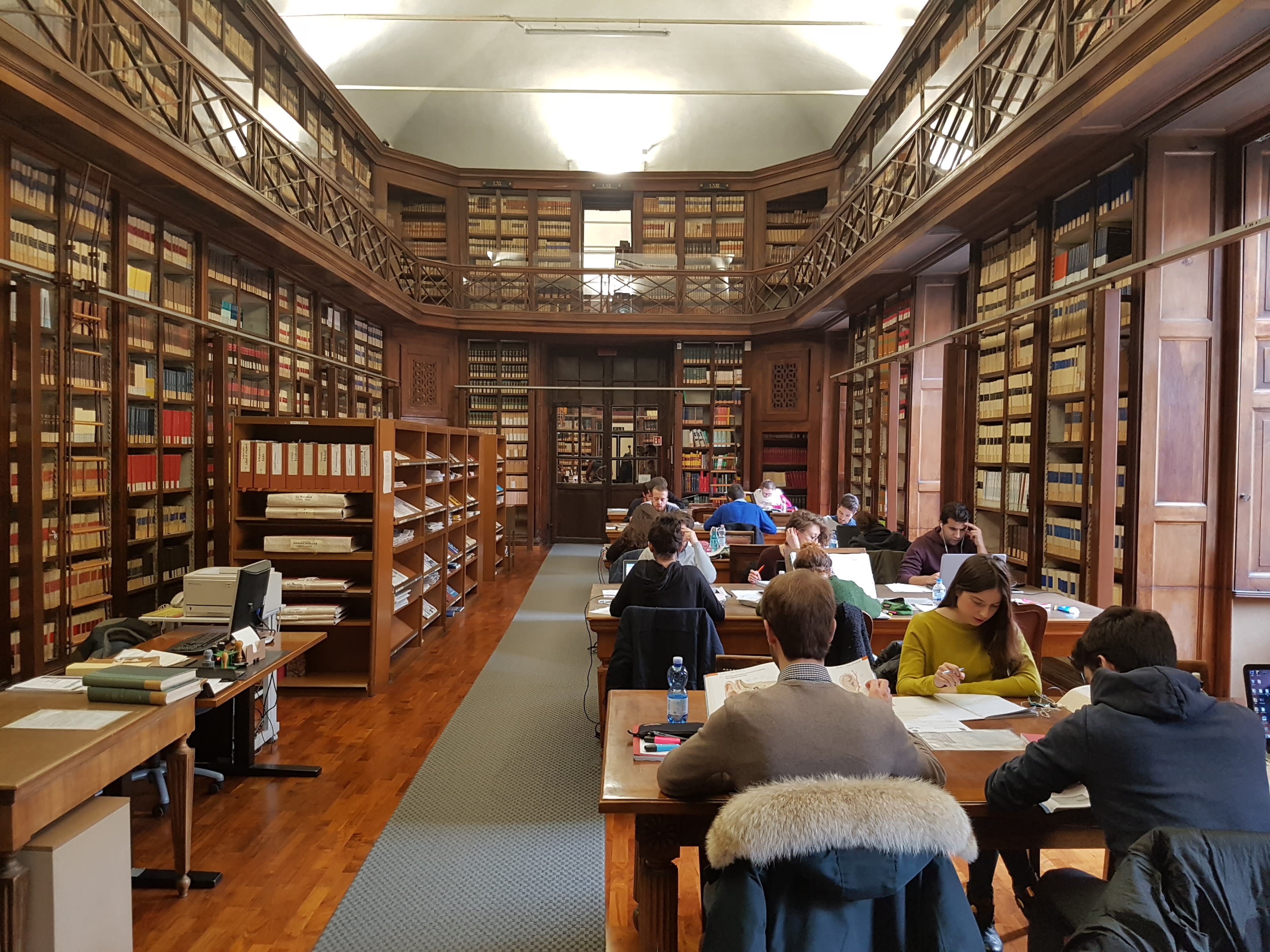Why Study Electrical Engineering?
Engineering degrees have become one of the most valuable qualifications you can have, with recent graduates making over $50,000 a year. Petroleum engineers tend to earn the most, although soon they are set to be overtaken by a group of engineers designing the digital and sustainable technologies that will define the next few decades: electrical engineers. These engineers help build all the devices and gadgets we use on a daily basis, including smartphones, laptops, and microwaves. Moreover, electrical engineers design and maintain the infrastructures integral to any advanced technological society, such as power stations and military defense systems. So what do you need to become an electrical engineer? What are your short and long-term career prospects after graduation? And where should you study if you want to become part of the next generation of electric engineers committed to building more sustainable societies? Let’s take a look at why -- and where -- you should study electrical engineering.
- Education

So what do you need to become an electrical engineer? What are your short and long-term career prospects after graduation? And where should you study if you want to become part of the next generation of electric engineers committed to building more sustainable societies? Let’s take a look at why -- and where -- you should study electrical engineering.
What is electrical engineering?
Electrical engineers design and develop devices and systems that use electricity, electronics, and electromagnetism. Unlike many other engineering fields, which date back to antiquity, electronic engineering is a relatively new discipline. It emerged during the 19th-century when scientists like Hans Christian Orsted and Michael Faraday began working on electromagnetic induction.
Electromagnetic induction uses magnetic fields to produce voltage and electric current in a closed circuit. It powers electric motors, generators, and many other devices and gadgets. This groundbreaking discovery laid the foundation for waves of inventions and developments that changed the way people lived forever. In fact, the beginning of the 'modern age' is marked by the introduction of electricity to homes, businesses, and industries. And none of it would have been possible without electrical engineers. Just imagine what the world would be like without lightbulbs, television, microchips, telecommunications systems, or computers.
Why study electrical engineering?
Electrical engineering is a practical discipline with a plethora of great career opportunities. Electrical and electronics engineers can work in research and development industries, engineering services firms, manufacturing, government, and tech. Relevant industries include automotive manufacturing, aerospace, defense, consumer electronics, commercial construction, computing, and telecommunications.
It means you could end up testing microchips for supercomputers or designing reusable space rockets. For example, SpaceX, Elon Musk’s multibillion space exploration company, recently advertised an Electric Test Engineer vacancy. This exciting role involves creating test systems for rockets and satellites, helping SpaceX achieve its fundamental goal of allowing humanity to explore the stars. That's a pretty good reason to get up for work on a Monday morning!
Engineers at major companies like SpaceX make around EUR71,000 a year, while senior engineers command salaries well into the six figures. And the starting salaries for graduates at other companies are also very generous. On average, the salary range for a newly graduated electrical engineer is around EUR45,500. A mid-level engineer with a master's degree and five years of experience can earn EUR61,500. It's not unusual for senior engineers with a master's or doctorate to make as much as EUR115,000.
What do you need to become an electrical engineer?
Electrical engineers require an in-depth understanding of electrical and electronic theory, mathematics, and materials. They also need advanced computer skills, and coding knowledge is a huge advantage. Electrical engineers are increasingly relying on computer-aided design (CAD) systems for testing and research. Computer simulations can model giant national power grids, run war games against a new radar or defense system, or test the processing speed of microchips.
Essentially, electrical engineers are problem solvers and innovators. They're always looking to improve output and efficiency. As such, they tend to be analytic thinkers who take a systematic approach. However, there's still plenty of room for imagination and flair in electrical engineering. Those who can combine the practical approach with novel ways of thinking tend to be the most successful and influential engineers.
And they can do some genuinely amazing things that transform the way we see ourselves and the world. Generally regarded as the greatest electrical engineer of all time, Nikola Tesla believed engineering was much more than just a 'science'. He saw it as a humanist project that can build a fairer and more sustainable world. "All people everywhere should have free energy sources," wrote Tesla in 1900. "Electric power is everywhere present in unlimited quantities and can drive the world's machinery without the need for coal, oil, or gas."

The future of electrical engineering
Despite the global economic uncertainty caused by the outbreak of COVID-19, the future looks bright for electronic engineers. In fact, they will play a central role in developing and testing the smart technologies and infrastructure set to power the global recovery. The US Bureau of Labor Statistics (BLS) predicts that demand for electrical engineers will grow by almost 5% within the next 12 months and exponentially over the coming decade. "The rapid pace of technological innovation and development will likely drive demand for electrical and electronics engineers in research and development, an area in which engineering expertise will be needed to develop distribution systems related to new technologies," according to the BLS. Electrical engineers are also at the forefront of the most exciting developments in science and technology, including wireless neuro-links that could help stroke victims regain motor function.
An electrifying program for aspiring engineers
Founded in 1361, the University of Pavia, in northern Italy, is one of Europe's oldest and most prestigious higher education institutions. Located just half an hour away from Milan, tucked away among a maze of medieval streets in the beautiful city of Pavia, it is renowned for focusing on its students' excellence and well-being, offering numerous student dorms and campus residences, and providing a wealth of scholarship options.
The University of Pavia understands the challenges that electrical engineering will face in the coming years. That's why the school's MSc in Electrical Engineering is designed around the tech, energy, and communication needs of the 21st-century. This innovative course prepares students in the rational management of energy resources, giving them the skills and knowledge to understand and then implement alternative and sustainable solutions for energy and transport, such as solar, wind, hydro and geothermal power.
Seminars and tutorials are taught by industry leaders and visiting professors from all over the world. Guest speakers have included Prof. Angel Mediavilla Sanchez. He talked to Pavia engineering students about his fascinating work on radar antennas as part of a long collaboration with the European Space Agency.

Through a mix of classroom-based learning and extended laboratory activities, students will learn how to identify, understand, and solve complex issues in the electrical engineering field. And they will gain some first-hand experience of computing modeling software and electrical testing systems used in the design process and industrial automation.
After graduation, students have the skills and experience to design electrical installations, implement systems for automated power grids, evaluate electromagnetic compatibility problems in industrial settings, and design energy systems in industrial, civil, and service sectors.

Stefania graduated from the University of Pavia earlier this year. She says, "The University of Pavia professors are incredibly competent and put their students first, and they're always available to help you. During my time at Pavia, I had the opportunity to travel abroad and expand my network and personal experiences. It really prepared me for a career after graduation."
So do you want to be among the finest minds set to tackle the next generation of complex yet fascinating challenges in energy, construction, technology, the environment, and more? If you do, apply now!
Article written in association with the University of Pavia.

Find your perfect program
Use our search to find and compare programs from universities all over the world!
University of Pavia
Ashley Murphy
Author
After graduating with a degree in English literature and creative writing, Ashley worked as a bartender, insurance broker, and teacher. He became a full-time freelance writer in 2016. He lives and writes in Manchester, England.
Find a program in these categories


